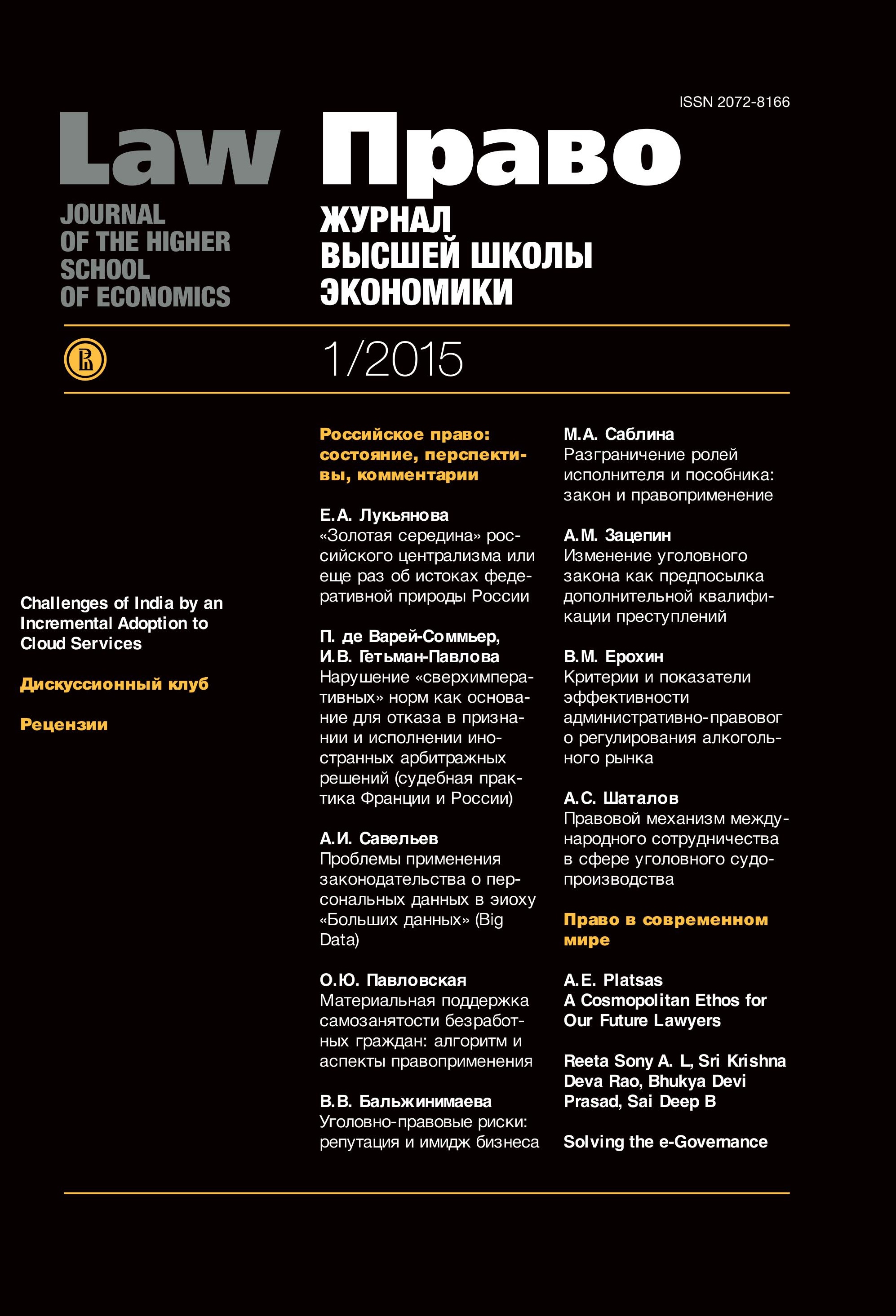«Золотая середина» российского централизма, или еще раз об истоках федеративной природы России
Аннотация
Статья представляет собой анализ динамики развития взаимоотношений российского центра и регионов. Данные взаимоотношения подвержены циклическим колебаниям — от широкой децентрализации (вплоть до «парада суверенитетов») до абсолютной централизации. Россия прошла такой цикл за период 1989–2014 гг., вновь оказавшись сегодня перед угрозой очередной децентрализационной волны. Автор утверждает, что существует нейтральное положение системы, «золотая середина», в которой взаимоотношения центра и регионов стабильны и не подвержены ни центробежным, ни центростремительным силам. Для определения такой «золотой середины» необходимо обратиться к историческому опыту: способам решения вопроса государственного устройства в Российской империи, РСФСР и СССР. Исследование показывает, что, несмотря на сложную структуру государственного устройства Российской империи, она оставалась унитарным государством. Статус различных территорий, в том числе имеющих элементы политической автономии, не унифицировался, а власть центра опиралась на национальные и местные традиции. Анализ Конституции РСФСР 1918 г., провозгласившей Россию федерацией, и практики ее применения также указывает на скорее унитарную модель государственного устройства. Само по себе возникновение термина «федерация» связано не с концепцией национально-территориального устройства, а с необходимостью сохранения целостности страны: достижения компромисса между унитаризмом и сепарацией. Эта же тактика была использована для сохранения целостности страны в 1990–1993 годах. Однако к концу 2000-х годов самостоятельность субъектов, присущая федерации, была фактически сведена на нет. Современный статус субъектов федерации в России подпадает под определение государственной (политической) национально-территориальной автономии в унитарном государстве. Таким образом, федерация в России является условной или символической. По сути Россия является унитарно-регионалистским государством, в котором федеративная риторика используется как инструмент для тактического политического маневра. Это, в свою очередь, предполагает гибкость политики центра в отношении регионов и отход от тактики абсолютного диктата. «Сила» центра должна заключатся в его умении поддержать мир и благополучие на всей территории страны ненасильственным путем, а также построении отношений с регионами на основе уважения и учета их интересов, в том числе при формировании бюджета.


















